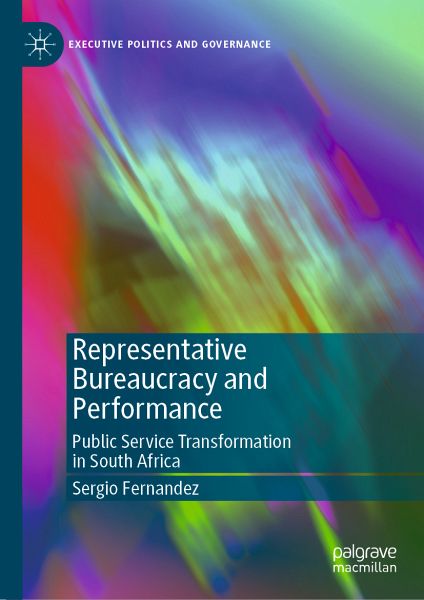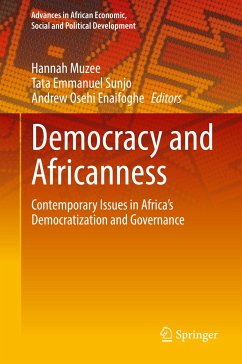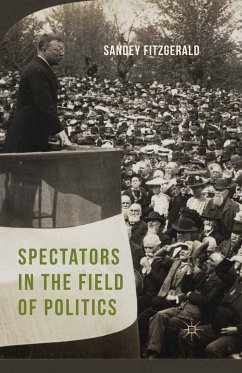
Representative Bureaucracy and Performance (eBook, PDF)
Public Service Transformation in South Africa
Versandkostenfrei!
Sofort per Download lieferbar
40,95 €
inkl. MwSt.
Weitere Ausgaben:

PAYBACK Punkte
20 °P sammeln!
"Representative Bureaucracy and Performance: Public Service Transformation in South Africa is a first-rate blend of quantitative and qualitative analysis of one of the major transitions in modern governance. Fernandez makes a major theoretical contribution to the literature on representative bureaucracy in demonstrating how descriptive representation translates into both active representation and better performance. His discussion of the crucial role of language and communication brings new insight to the literature on public administration and democracy."-Kenneth Meier, Distinguished Scholar ...
"Representative Bureaucracy and Performance: Public Service Transformation in South Africa is a first-rate blend of quantitative and qualitative analysis of one of the major transitions in modern governance. Fernandez makes a major theoretical contribution to the literature on representative bureaucracy in demonstrating how descriptive representation translates into both active representation and better performance. His discussion of the crucial role of language and communication brings new insight to the literature on public administration and democracy."
-Kenneth Meier, Distinguished Scholar in Residence, American University
-Robert Cameron, Professor, University of Cape Town
"This book provides an excellent analysis of the theory of representative bureaucracy in the context of South African post-apartheid government. South Africa is an important and fascinating case. The work adds substantially to the literature on representative bureaucracy and will be of interest to all who are concerned with the effectiveness of government organizations."
-J. Edward Kellough, Professor, University of Georgia
Governments throughout the world seek to promote employment equity and ensure that bureaucracies are representative of the citizenry. South Africa offers a rare and fascinating case for exploring what happens to bureaucracies as they undergo demographic transformation. Grounded in the theory of representative bureaucracy and using a mixed methods approach, this book explores how major changes in the demographics of the South African public service have affected the performance of the institution. The empirical analysis offers compelling evidence that representative bureaucracies perform better. As public organizations become increasingly representative by hiring historically disadvantaged persons, especially Africans, their performance improves, controlling for a range of factors. Evidence indicates representative bureaucracies perform better because they empathize with and advocate for historically disadvantaged communities, are equipped with linguistic and cultural competencies to serve a diverse citizenry, and can induce compliance, cooperation, and coproduction.
Dieser Download kann aus rechtlichen Gründen nur mit Rechnungsadresse in A, B, BG, CY, CZ, D, DK, EW, E, FIN, F, GR, HR, H, IRL, I, LT, L, LR, M, NL, PL, P, R, S, SLO, SK ausgeliefert werden.












